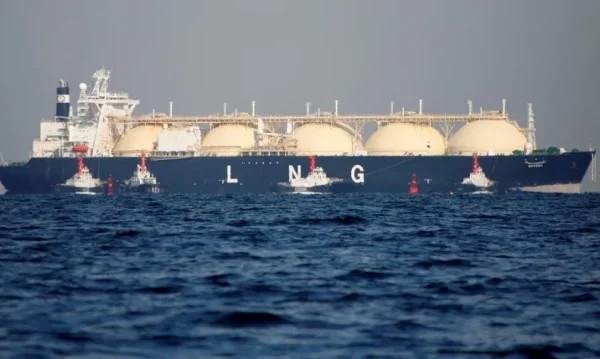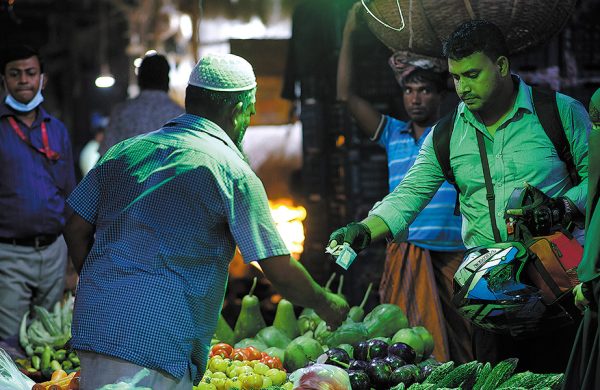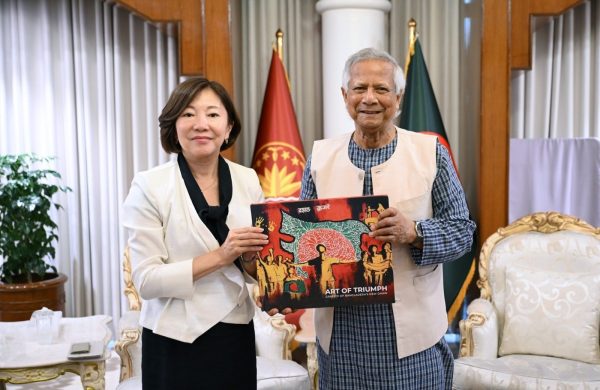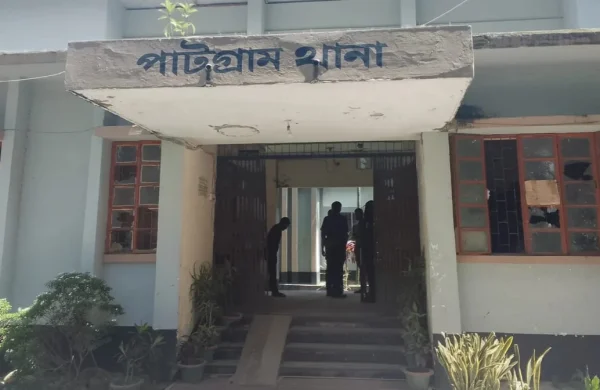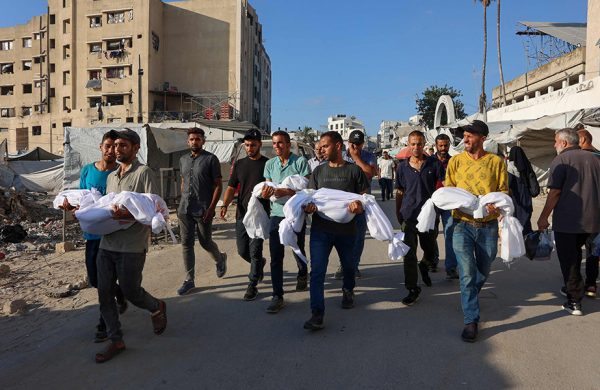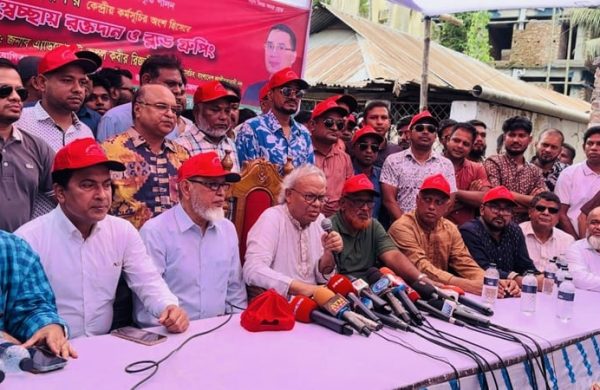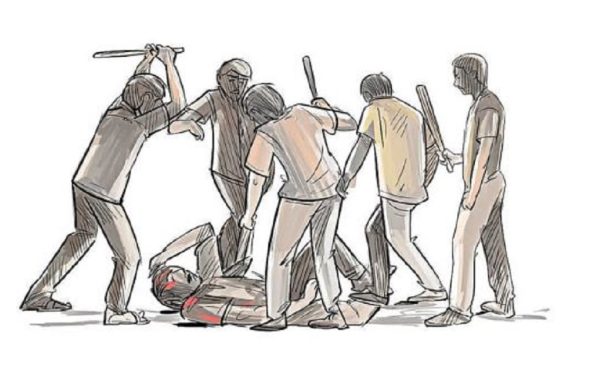Fodders’ production likely to stop for high price of raw materials
- Update Time : Friday, April 8, 2022

Health and nutrition security under threat
Staff Correspondent:
Production of fodders particularly for poultry, fisheries and cattle may stop at any time due to abnormal price hike of raw materials.
There is a complaint that, a section of unscrupulous traders has created artificial crisis of raw materials on the plea of ongoing Russia-Ukraine war just after a little bit relaxation of Corona pandemic.
Consequently, owners of poultry, dairy and fisheries farms have fallen in serious trouble to continue their business. Meanwhile, many owners have closed their farms, while many farms are underway to closure. Such situation may cause of an economic disaster in the country.
Sources said that, the prices of raw materials for poultry, fish and cattle feed have skyrocketed in the international and local markets due to Corona epidemic and the Russia-Ukraine war.
The prices have been increased 88 percent in the last two years by Soybean mills. The prices of other raw materials have risen by 123 percent. Meanwhile, a number of feed producing small mills have already closed.
Leaders of the Feed Industries Association of Bangladesh (FIAB) have expressed concern that the feed mills can close down at any time, if the prices of raw materials are not brought under tolerable stage.
Health and nutrition experts said, if this happens, there will be a huge shortage of eggs, milk, fish and meat in the country in the certain possible time. As a result, health and nutrition security will be threatened seriously.
FIAB President Ehtesham B Shahjahan said, “The backs of the feed mills, which had been counting losses for the past few months, have now stuck to the wall. Feed millers thought raw material prices would be tolerable; but it did not happen. In addition, the prices are rising every day. At present, the total production cost of raw materials has increased so much in which we are incurring losses everyday.”
We are counting loss of Tk 3 to Tk 4 against per kg of broiler feed, Tk 4 to Tk 5 against fish feed, Tk 3 to Tk 4 against lyre feed and Tk 4 to Tk 5 against cattle feed, he added.
Finding no way, large feed mills have reduced their production by 15-20 percent. Several small mills and many broiler farms have already closed. Extreme frustration is prevailing among poultry, fish and dairy farmers due to mismatch of market price with production cost, insiders said.
FIAB general secretary Ahsanuzzaman said, “About 80 percent of the total production cost is counted against raw materials. In March 2020, the price of maize was Tk 24.18 per kg, this month it has increased to Tk 36. The price of Soybean meal has now stood at Tk 80 from Tk 37.25. Full fat Soybean of Tk 38.50 is now priced at around Tk 66.90. Rice husk of Tk 21.25 has reached at Tk 36.33.
L-lysine is being sold with Tk 200 against Tk 133.33, DLM at Tk 300 against Tk 200, poultry meal at Tk 80 against Tk 54 and fish meal at Tk 146 against Tk 100.
Due to price hike of raw materials on the pretext of short supply caused by Russia-Ukraine war, the prices of various types of fodders have increased alarmingly that creates an impact at consumer level.
Ahsanuzzaman further said that “The domestic poultry, fisheries and dairy sectors have been taken hostage by a handful of four seed crushing companies. Therefore, the government needs to pay special attention to this issue.”
The National Department of Consumer Protection and the Consumers Association of Bangladesh (CAB) also need to be vocal. Because, if the production cost of eggs, milk, fish and meat increases, it will fall on the shoulders of ordinary consumers, he added.
Abu Lutfe Fazle Rahim Khan Shahriar, senior vice-president of FIAB said, “The rise in raw material prices was not the only reason for facing trouble of mills, the production chains of egg, milk, fish and meat are about to break.”
He said that, in the case of import of raw materials, it takes an average of about 50 days from the time of LC to the time the goods reach the port; It takes about 60 days from the United States. Food supply has been disrupted in the wake of the Russia-Ukraine war. Ship fares have increased abnormally due to rising crude oil prices, with some products not being available even with money.
According to the data, the prices of maize and Soybeans have reached an all-time record.
Shahriar said, the Commerce Ministry had allowed re-export of Soybean mills despite the acute shortage of raw materials in the country and opposition from farmers. The Commerce Ministry must move away from this decision.
President of the Bangladesh Poultry Industries Central Council (BPICC) Moshiur Rahman has sought the intervention of the Prime Minister to bring the situation under control. This is a time of crisis. We have to protect the domestic industry as well as we have to keep the production system of nutritious food like eggs, milk, fish and meat active. Otherwise the country will be in dire food and nutrition crisis, a lot of people will be unemployed.
FIAB treasurer and BPICC vice-president Shamsul Arefin Khaled has demanded tax exemption facility till 2025 to overcome the crisis.
He said the government had provided tax holiday facility for the sector till 2015. Now that facility has become vital again.
He said, “The government has been providing various incentives and benefits for agriculture, but despite being a large part of agriculture, there is no government incentive for this sector. We don’t want cash. I expect the Prime Minister to direct the bank to fix the interest rate at 4.5 percent for the feed manufacturing industry, reschedule previous loans and stop bank installments for the next one year. At the same time, in the forthcoming national budget, we are requesting withdrawal of all types of advance tax (IT), advance income tax (AIT), source tax, VAT and duty on import of all kinds of raw materials and equipment used for making poultry, fish and animal feed.”
FIAB’s newly elected general secretary Nazrul Islam said, “Some traders and importers are manipulating the price of raw materials. Therefore, the government needs to pay attention. An unreasonable increase in the price of raw material in the domestic market on the pretext of increasing the price in the international market is not acceptable.”
He said, the middle-income country declared by the Prime Minister by 2024 and achieving the UN SDGs by 2030 must ensure affordable food and nutrition for all.
Nazrul said, “If the crisis intensifies, the lives and livelihoods of about 20 million people directly and indirectly involved in the poultry, dairy and fisheries sectors will become uncertain. The domestic poultry, fisheries and dairy sectors will face serious dilemma.”



